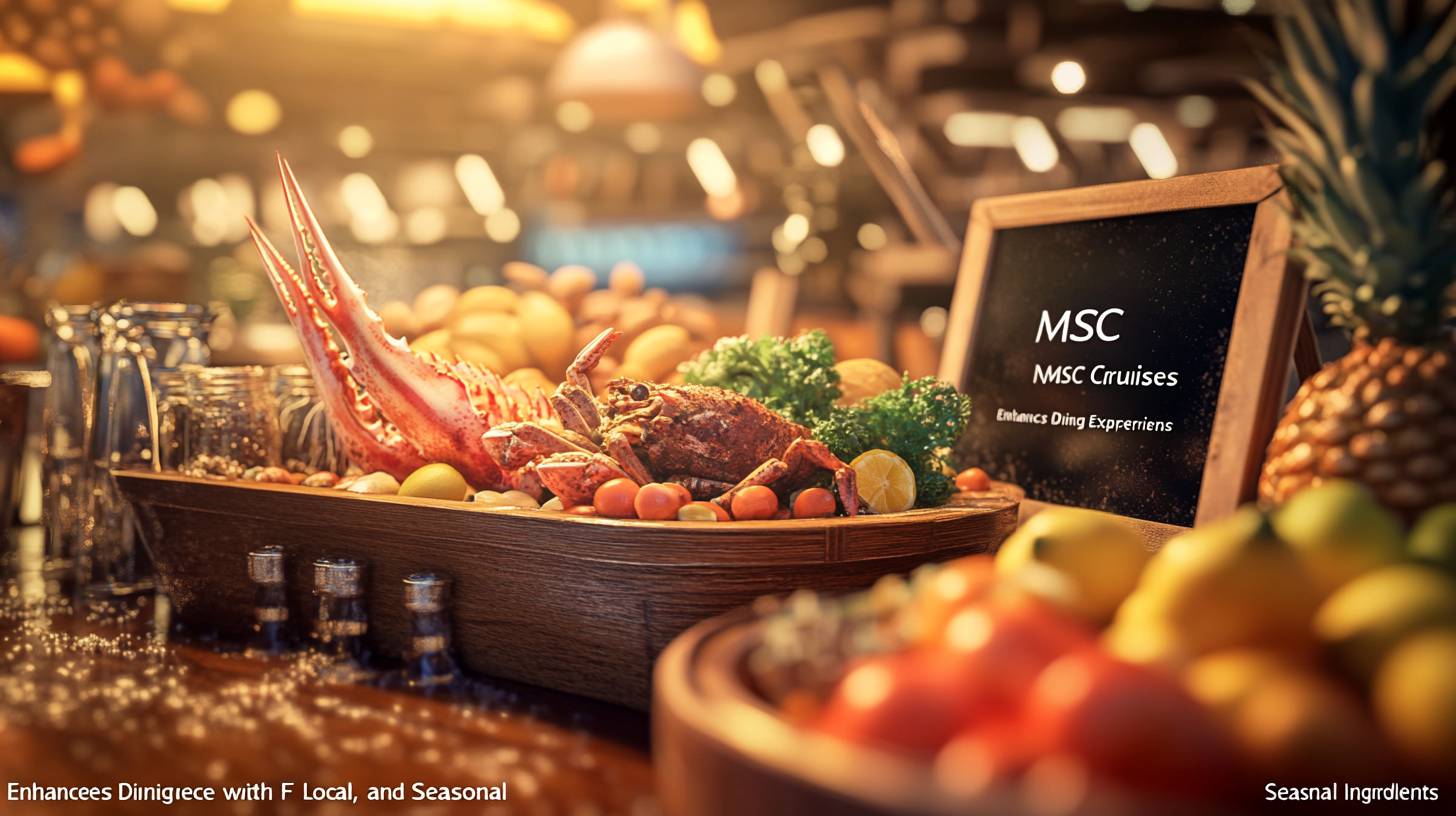
Utilizing intelligent containers for food preservation
MSC Cruises, a branch of the international shipping firm MSC, has effectively utilized its parent company’s logistical proficiency to improve its cruise services, especially in food supply management. By making use of smart containers, MSC Cruises guarantees the delivery of the highest quality produce to its vessels, a key element in upholding the excellent standards anticipated by its customers.
These intelligent containers, created in partnership with MSC’s shipping sector, feature internet access, allowing for real-time tracking of crucial metrics like temperature, humidity, and location. This information is consistently transmitted to a centralized Customer Service Center in Antwerp, Belgium, where it is monitored around the clock. The system issues early warnings if any complications arise during transit, enabling suppliers to rectify potential issues before the products reach their destination.
This innovation is especially advantageous for perishable items such as meat, seafood, and dairy, which necessitate specific environmental conditions to preserve their freshness. Should a complication arise during transport, an alert is swiftly sent to the supplier, allowing them to implement corrective measures immediately. This not only guarantees food arrives in peak condition but also minimizes the need for expensive replacements and delays.
“A hitch in the transportation of goods by land or sea triggers a notification to the supplier, facilitating the resolution of the issue during transit to ensure that food items relying on precise environmental conditions for freshness can be delivered without requiring costly, delayed replacements,” the company stated.
As MSC Cruises ventures into new markets, including the United States, the implementation of smart containers has been revolutionary in addressing supply chain obstacles, particularly in areas where sourcing local products poses a challenge. The capability to supervise and modify environmental conditions in real time has enabled MSC to uphold the quality of its culinary offerings, even in markets with intricate logistical challenges.
Paolo Raia, MSC Procurement Director, highlighted the significance of this innovation on the company’s activities:
“The incorporation of smart containers has had a dramatically positive effect on our food supply process, particularly in regions where sourcing and acquiring all necessary products locally is difficult. Another major benefit of smart containers is that we can constantly oversee the humidity and temperature of the goods in transit in real-time and adjust parameters as needed, ensuring we deliver the freshest and highest quality food for our guests.”
Impressive food consumption metrics at MSC Cruises
MSC Cruises functions on an extensive scale regarding food consumption, with its fleet of 22 ships necessitating a vast array of provisions to serve its guests. The figures are astounding: the fleet utilizes 32 million eggs, 1.5 million gallons of milk, 170,000 oysters, 2 million tomatoes, 2 million pounds of apples, and 1.7 million pounds of lemons annually. These statistics underscore the enormous quantity of food that must be sourced, transported, and securely stored to fulfill the needs of passengers.
During a standard 7-night journey, each ship carries around 50,000 pounds of fresh fruit, 44,000 pounds of fresh vegetables, and 12,000 pounds of fish. This scale of consumption demands a highly coordinated supply chain, and the adoption of smart container technology has been crucial in guaranteeing that the food supplied to the ships is of the utmost quality. The ability to oversee and adapt environmental conditions during transport has permitted MSC Cruises to sustain the freshness of its produce, even when sourced from remote or challenging locations.
For the business landscape in Australia, this standard of operational efficiency and technological assimilation presents significant insights. As Australian enterprises seek to broaden their global presence, particularly in sectors dependent on perishable goods, the adoption of smart logistical solutions like MSC’s intelligent containers could offer a competitive advantage. The capability to assure product quality through real-time monitoring and adjustments during transportation could be transformative for Australian exporters, particularly in agriculture and food industries where freshness is vital for market success.

